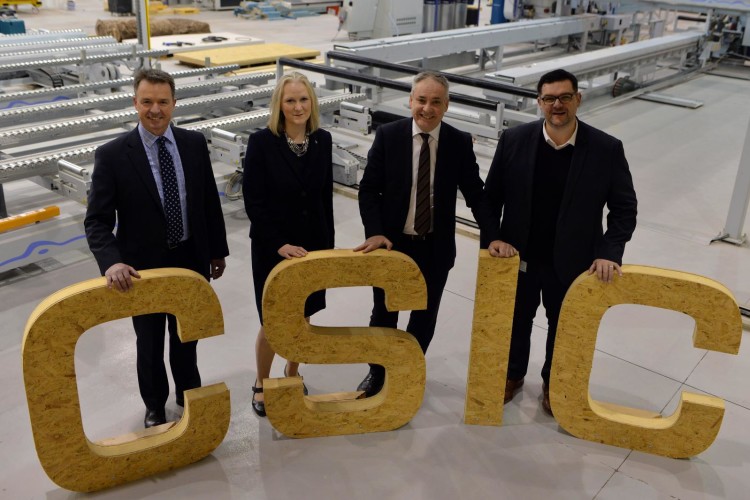CSIC said that it expects that the funding will support the construction sector to deliver £998m of additional gross turnover, create more than 1,800 new jobs and retain over 4,700 existing ones over the next five years,
The investment from the Scottish Funding Council, Scottish Enterprise and Highlands & Islands Enterprise will support CSIC’s ‘phase 2’ mission to bring innovation into the mainstream of construction, leading to improved productivity and growth within the sector.
The funding was confirmed today by Richard Lochhead MSP, minister for further education, higher education and science. “Our vision is for a Scotland where innovation is an intrinsic part of our culture, our society and our economy,” he said. “This relies on a pipeline of knowledge and skills from universities, colleges and research institutes. Fostering connections between the worlds of industry and academia is vital in making that vision a reality for the construction sector as in others.”
Scotland’s construction industry and its supply chain currently employs over 170,000 people with up to a further 60,000 self-employed workers - 10% of the Scottish workforce. It contributes £21.5bn to Scotland’s GDP, and makes up 10% of Scotland’s gross value added (GVA). For every £1 spent on construction output, a further £2.94 is generated in the economy.
CSIC - one of eight industry-led innovation centres in Scotland -provides the construction sector and its clients with a ‘single entry point’ to a range of innovation support including academic expertise, R&D funding, technology and access to a range of wider public sector innovation products and services. It was launched in 2014 and its mission for its first five years (phase 1) was to connect the construction industry with academia and build a culture of innovation.

CSIC has exceeded its Phase 1 targets, supporting 236 innovation projects from over 780 enquiries, with a total value of £10.7m. The prediction is that these will lead to 262 new products, processes, services or business models going to market, create over 1,200 new jobs and lead to an additional £738m of revenue over the next five years. It has also built a digital community.
Over the next five years (phase 2), CSIC’s activities will fall under four key areas:
- culture change – focusing on the cultural barriers across the industry and addressing issues like new innovative procurement models, diversity and inclusion, internationalisation, collaboration, productivity and investment in R&D and innovation;
- digital transformation – focussing on the digital and data technologies that offer the greatest potential to unlock growth across the industry;
- accelerating industrialisation – focusing on industrialisation and manufacturing opportunities including offsite, robotics and design for manufacturing and assembly to drive productivity, quality and efficiency measures across the industry;
- building sustainably – focusing on the industry factors related to energy and de-carbonisation, design for an ageing society, smart and sustainable materials and the circular economy.
CSIC chief executive Stephen Good said: “The construction industry is on the verge of a digital and manufacturing revolution. Phase 1 saw CSIC establish itself and focus on building an innovation culture, and we’ve succeeded in creating a solid foundation around that. With this next phase of funding support in place, we can help scale-up and mainstream innovation within the sector, which in turn will unlock growth.
“However, for the next phase to be as successful as it can be, we need industry and its clients, both public and private, to really step up and drive that revolution forward through investing in innovative, collaborative projects which draw on academic expertise to unlock key opportunities. At the heart of any change programme sits committed people and by working together, the future for the construction sector is very bright indeed.”
Got a story? Email news@theconstructionindex.co.uk



